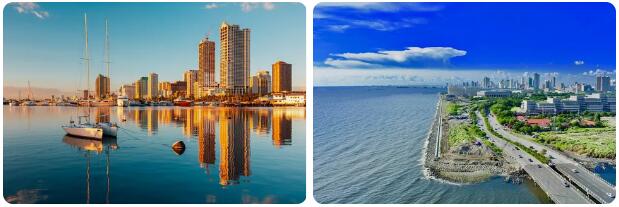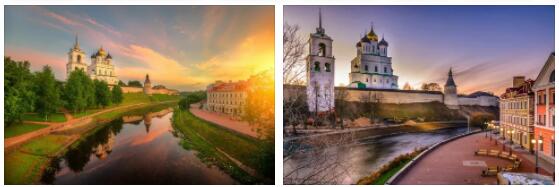Azerbaijan 2006
In 2006, Azerbaijan was a developing country located in the South Caucasus region. Despite having experienced strong economic growth in the early 2000s due to increased foreign investment and new businesses being established across the nation, there were still significant challenges facing Azerbaijani citizens in 2006. Poverty and unemployment remained high, with many citizens living below the poverty line. Education had improved over the years, but access to higher education was still limited for many people. According to constructmaterials, infrastructure had been developed throughout Azerbaijan, with new roads, bridges and other public works projects being constructed; however, much of the rural areas remained underdeveloped or inaccessible due to poor infrastructure and lack of resources. Furthermore, security threats from organized crime groups were a pressing issue in 2006 and there were increasing concerns about human rights violations throughout the country. Nevertheless, citizens of Azerbaijan were hopeful that their country could continue to make progress towards a better future for its citizens.
Yearbook 2006
Azerbaijan. Like a number of neighboring countries, Azerbaijan faced Russian demands during the winter on almost doubling the price of natural gas. As Azerbaijan’s own gas fields are not yet developed, the country was forced to agree to price increases in anticipation of increased own production and planned imports from Iran. Prior to New Year, President Ilham Aliyev met his Iranian counterpart Mahmoud Ahmadinejad, and a new gas pipeline from Iran was opened to the autonomous Azerbaijan excavator Nachichevan.
According to CountryAAH, major public holidays in Azerbaijan include Independence Day (October 18) and New Year (January 1). The improved relations between Azerbaijan and Iran were seen by analysts as a setback to the US security policy strategy in the region. But neither Russia seemed to have the desired influence in Azerbaijan. Despite President Vladimir Putin’s visit to Baku in February, Azerbaijan managed to stave off Russian attempts to gain control of the Azerbaijan energy sector. President Ilham Alijev met in February in Paris with his Armenian colleague Robert Kotjarjan for talks on the conflict over the Armenian enclave Nagorno-Karabach in Azerbaijan. There was no progress, and some time after the talks, Aliyev made a hard hit against Armenia. He accused Armenian nationalists of wanting to expel Azerbaijanis from their land and create a Great Armenia.
In the spring, three young regime-critical activists faced trial behind closed doors accused of planning to overthrow the Azerbaijani regime. They denied the accusations and the case received international attention ahead of President Aliyev’s visit to the United States in April. Aliyev apparently made no concessions to the US’s request for cooperation with Iran, although Azerbaijani opposition leaders speculated that Aliyev agreed to grant bases to the US military. After the US trip, Aliyev again met Iran’s president, who was attracted by increased energy cooperation. It was further evidence of improved relations between the two countries, whose earlier harsh relationship was a brake on the development of the rich energy reserves in the Caspian Sea.
After the election fraud was found during the parliamentary elections the year before, ten parliamentary seats were re-elected in May. Half of the ten seats went to the New Azerbaijan ruling party, which thus controlled 61 of Parliament’s 125 seats. But many so-called independent members also supported President Aliyev, and the real opposition had only a few seats. International observers described the re-election as correct unlike last year’s election.
In November, the authorities resorted to the opposition, among other things. by closing the independent TV channel ANS and evoking an opposition party and a newspaper from its premises. Following criticism from the United States, ANS received its broadcasting license back in December.
Azerbaijan Overview
The Republic of Azerbaijan (Azerbaijani in Azerbaijan), or Azerbaijan, is an inland state in the Caucasus on the shores of the Caspian Sea. Neighboring countries are Georgia in the northwest, Armenia in the west, Russia in the north and Iran in the south. The Autonomous Republic of Nakhichevan, which belongs to Azerbaijan, is located apart from the rest of the country to its southwest, surrounded by Iran, Turkey and Armenia. In the middle of Azerbaijan is the controversial Nagorno-Karabakh region, which has declared independence. The Republic of Azerbaijan has been a member of the Council of Europe since 2001. The majority of the population is Shiite Muslims and ethnically Azeris. Azerbaijani culture has been influenced by Persian, Turkish, Arabic, Caucasian and Russian culture.
- According to abbreviationfinder, AZ is the abbreviation code for Azerbaijan.
Area: 86,600 km
Population: 10,205,810 (estimate 7/2020)
Capital: Baku
Population: 91.6% Azerbaijani, 2% Lezge, 1.3% Russian, 1.3% Armenian, 1.3% Talysh, 2.4% others.
Religion: The conquest of Azerbaijan is Islam. There are 93.4% of the Islamic population, 2.5% of Russian Orthodox and 2.3% of Armenian Orthodox, as well as 1.8% of other religions.
Language: Azeri (the official language)
Currency: Azerbaijani manat
Main products: Oil, natural gas, machinery, food, cotton
Form of government: Republic






